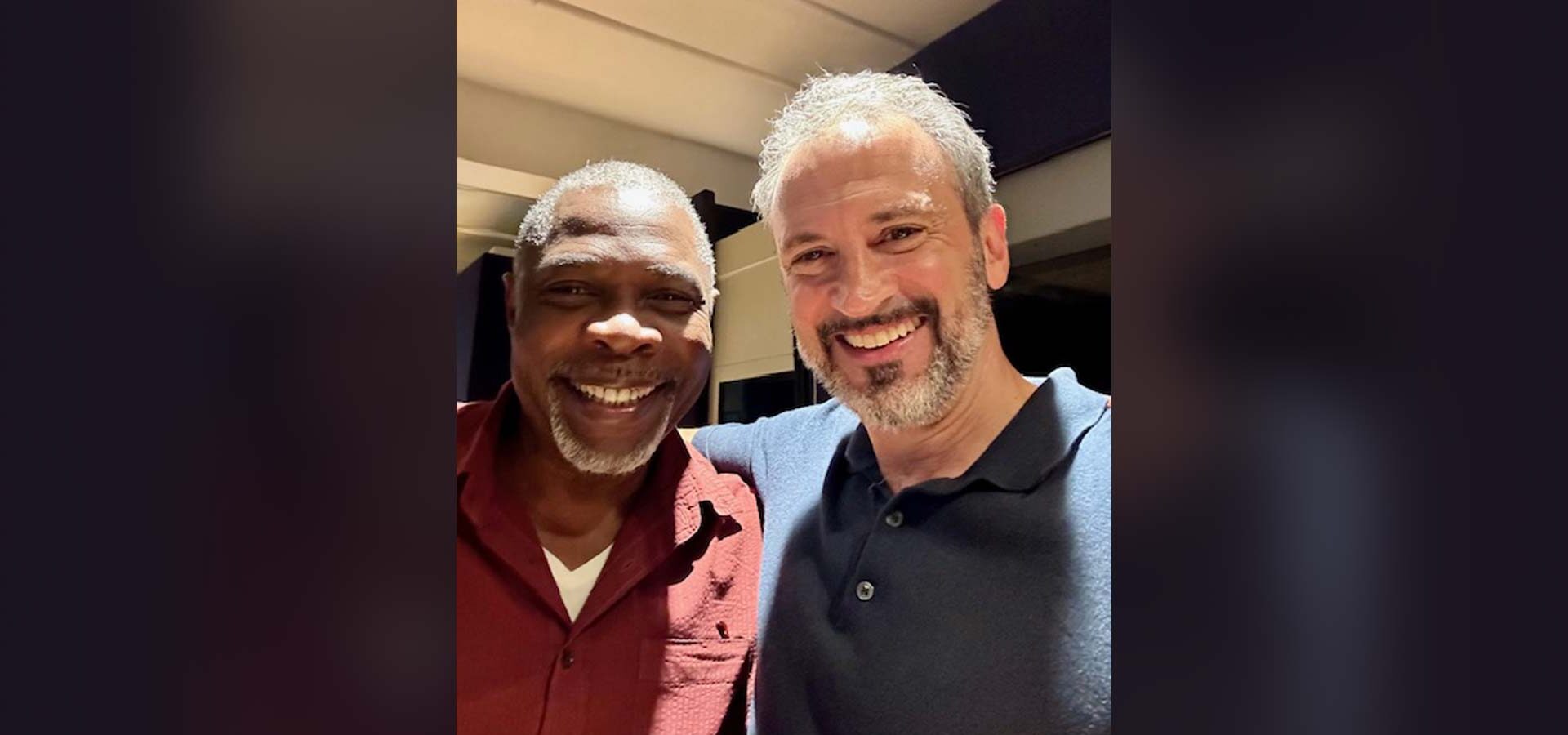Time to Read: 10 minutes
In 2020, Next Chapter Podcasts approached Play On about a project that would grow to surpass all of our expectations: The Play On Podcasts series. An audible adventure diving into Shakespeare’s texts through Play On’s modern verse translations, the series is packed with stellar performances and award-winning sound and music design, enticing audiences far and wide.
With three Signal Awards and over 10 million downloads, Play On Podcasts has risen to critical acclaim. In celebration of its 4th season, we sat down with Michael Goodfriend, Head of Scripted Fiction at Next Chapter Podcasts, to hear behind-the-scenes stories, share more about its history, and talk all things Shakespeare!
Tell me a little about how Play On Podcasts started. What initially grabbed your interest in the project?
I was an actor at the Oregon Shakespeare Festival, performing in Joe Haj’s production of Pericles, when Lue Douthit invited me to participate in a reading of Ellen McLaughlin’s translation of the play. Initially, I thought it was a bad idea. As an actor, I’d been trained to decipher and illuminate Shakespeare’s texts through careful research, rehearsal, and technique. However, a couple of years later, when Lue and Taylor Bailey asked me to participate in the Play On Festival at Classic Stage Center in New York, I participated in five readings that were open to the public. That event changed my mind.
I saw how the translations made many of the plays’ arcane elements immediate and impactful to modern audiences. There were comic bits that suddenly made sense, and aspects of tragedies like The Merchant of Venice and Othello became gut-wrenching in their brutality when stripped of what now sounds like poetry. Especially in rehearsal, the plays felt like new works. The room buzzed with excitement and conversation in ways I’d never experienced before.
Then came the pandemic. All stage work ceased across the country. Like a lot of actors, I performed in and listened to readings of Shakespeare on Zoom, and they were excruciatingly bad. At around the same time, I started working with an old colleague from my days as a radio producer (one of my side hustles as an actor) who had recently started a podcast production company. He asked me to help him get his scripted division established, and I jumped in. I was reaching out to some writers I knew to see if they’d be interested in writing podcasts when it hit me: What about serializing the Play On Shakespeare translations and making them into podcasts? The translations would make the plays come to life in the audio space, where you don’t have visual staging to help you understand what’s going on. We could make them immersive audio experiences and give the listener the sense that they’re in the world of the story. I pitched the idea to Lue Douthit and Taylor Bailey. They took it to The Hitz Foundation [founded by Dave and Ken Hitz], and the rest is history.
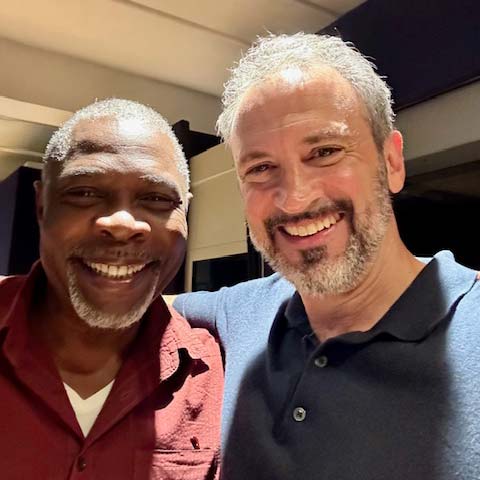
What was one of your favorite moments while working on the podcasts?
For me, the most exciting moment was publishing the first episode of our first series, Macbeth. I was working with Miriam Laube, who I’d brought on as Senior Producer for our first five series. We’d worked so incredibly hard to get the series together, and we had no idea if it would work. We had a phenomenal cast, including some very famous drag queens [Monét X Change, Peppermint, and Manila Luzon] as the witches. Eddie Torres was a fabulous director during the rehearsal and recording periods. Migdalia Cruz’s translation was superb, and David Molina did an amazing job on the sound design. Catherine Eaton had crafted a brilliant adaptation. Daniel Benshimon was an absolute engineering wizard, coordinating every actor remotely from sound booths they’d built themselves wherever they could find a quiet place in their home. When David delivered the final mix, we were all enthralled! It was everything we’d dreamed of and more. I got on FaceTime with Miriam and with NCP founder Jeremiah Tittle. We all poured ourselves a glass of wine and cheered as JT sent the pilot into the ether. Mind you, this was at the height of the pandemic. Everyone was in isolation. It felt profoundly meaningful to have this moment of connection and celebration and to send something out to the world that was a truly collaborative enterprise, unlike anything anyone had been able to do in theater for over a year. I felt this confluence of joy, relief, exhaustion, and accomplishment all at once. That moment will stay with me forever.
During the writing and recording process, you got to work with both Shakespeare as well as contemporary playwrights and screenwriters. As Head of Scripted Fiction, what was it like to work with so many writers on the series?
Each writer brings their own sensibilities to Shakespeare’s texts. Some take greater liberties than others. But Shakespeare is always at the heart of everything. The plays are illuminated in ways that underscore their brilliance, no matter whose translation we hear them through. So, on the one hand, I come away from every Play On podcast production feeling like I’ve gotten to know Shakespeare better than I had before.
On the other hand, I’ve gotten to know the writer who did the translation both personally and professionally. Personally, because we’ve spent hours on the phone, on Zoom, and in rehearsals conversing and simply getting to know each other as colleagues. Professionally, because the playwright has their own style and take on things that makes them unique. Jeff Whitty has lots of “whitty-isms” in his translation of Midsummer, Aditi Brennan Kapil has her very specific take on elements of Measure for Measure, and so on. Each writer’s translation gives you an appreciation for their intellect, their process, and the care with which they approach their work. Beyond that, collaborating with the translators has introduced me to all of their writing. The great thing about these podcasts is that they celebrate the myriad worlds Shakespeare created while at the same time introducing audiences to the myriad worlds and ideas of the playwrights who did the translations. It’s a writer’s chautauqua.
I have to ask—what’s your favorite Shakespeare play and why?
I get this question a lot. The answer has never changed: It’s whatever play I’m working on at the moment. But there’s a good reason for that. Every one of Shakespeare’s plays becomes relevant in our world when you start to really dig into them. You don’t realize right away, but once you’re in there making the soup, so to speak, you go, “Oh wow! That’s just like what’s happening now with [fill in the blank].” And then you say to yourself, “This play is brilliant! I love it! It’s my favorite!”
Right now, for instance, we’re in the midst of producing the fifth episode of the Play On Podcast, Julius Caesar. The story is about politics, tyranny, power, democracy, social strife, manipulating the masses, war, oratory, sexism, paranoia, scapegoating, and conspiracy. Sound familiar? Yeah. As we sift through the cultural carnage of our recent Presidential election, I’d say it’s quite relevant. So right now, my favorite Shakespeare play is Julius Caesar. Ask me again in a couple of months when I’m working on our seventeenth play of the series, and it will probably be that one.
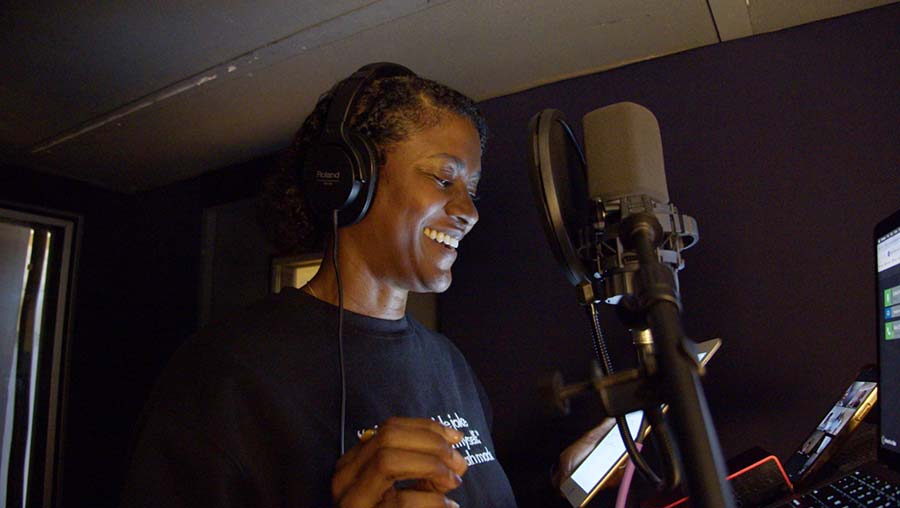
The series’ casts are full of powerhouse performers such as Monét X Change, Keith David, and Daisuke Tsuji. How did NCP go about casting for these roles, and what excited actors about the project?
Well, it helps to know people, for starters. Between the playwright, the director, and myself, we know many brilliant artists who are up to the challenge of playing Shakespeare, and some of the people we know are quite famous. Personally, one of the most gratifying aspects of this work is to be able to call a friend I know who is an amazing actor and offer them a job.
We also benefit enormously from the invaluable help of our genius casting director, Karyn Casl at Telsey Casting. I should also mention Ada Karamanyan, who worked with Karyn on twelve series for the Play On Podcasts. Ada and Karyn have been able to find and suggest actors we’d never have known about otherwise. What’s surprising is how often we can cast actors who are very well known, as you mention in your question. Usually, with actors of such stature, you don’t even bother checking on their interest and availability, especially for something as esoteric as a podcast of a Shakespeare play translated into modern English verse. But to my surprise, they always take the offer seriously, and most times, if they’re available, they say yes. Why? Well, like I said, it helps if they know someone who’s involved, but more than that, I think it’s because it’s Shakespeare, and it’s Shakespeare with a bit of a twist. We’re asking them to play a very famous role that hasn’t yet been heard in this particular way, and certainly not in their particular voice. I think they find it intriguing initially, and then when they get a look at the script, they think, “Well, that makes sense!” Plus, let’s face it, these roles are phenomenal, and you don’t get the chance to play them all that often, even if you’re Daniel Day Lewis. So why not say yes? You’ll get to stretch yourself and approach a work of great magnitude. Who doesn’t like to meet a challenge? And invariably, once they’ve done one series with us, they want to come back for more.
You’re an actor yourself—what differences have you noticed between onstage acting and audio performance?
I’d be lying if I told you that anything beats stage acting. Nothing comes close. But what’s great about audio performance is the interior work you get to put forth. You can be far more subtle, vocally than you could ever be on stage, even in a small house. You can whisper or mumble or go a little off the rails if you want. Plus, you get to do as many takes as you need to get it right, unlike stage acting where you get one shot at it per night. As Andy Grotelueschen (who plays the Duke in Measure for Measure and Touchstone in As You Like It) said to me, “Where else can you do takes of Shakespeare?”
What would you say has been the greatest success of the podcast series?
Well, the podcasts are incredibly well done, and they’re winning lots of awards, which is great. But the real measure of our success is the amount of people we’re reaching. When we first started, I told Lue, Taylor, and Dave and Ken Hitz not to expect much in the way of numbers. We were trying to reach a small niche within a niche: Audio fiction fans who like Shakespeare and aren’t put off by the “translation” label. I said we’d be lucky to reach a million downloads in ten years. Much to everyone’s surprise, we reached 2 million downloads in less than three years. Now, we’re on course to surpass 10 million downloads by the end of our fifth year. That speaks volumes. A primary goal of Play On Shakespeare is to make Shakespeare’s plays accessible to as many people as possible. Clearly, we’re succeeding in doing just that.
Find your next podcast below!







-

COMEDY is On the Road!
The Acting Company is about to embark on its U.S. tour of THE COMEDY OF ERRORS in a modern verse translation by Christina Anderson, in repertory with August Wilson’s TWO TRAINS RUNNING. -
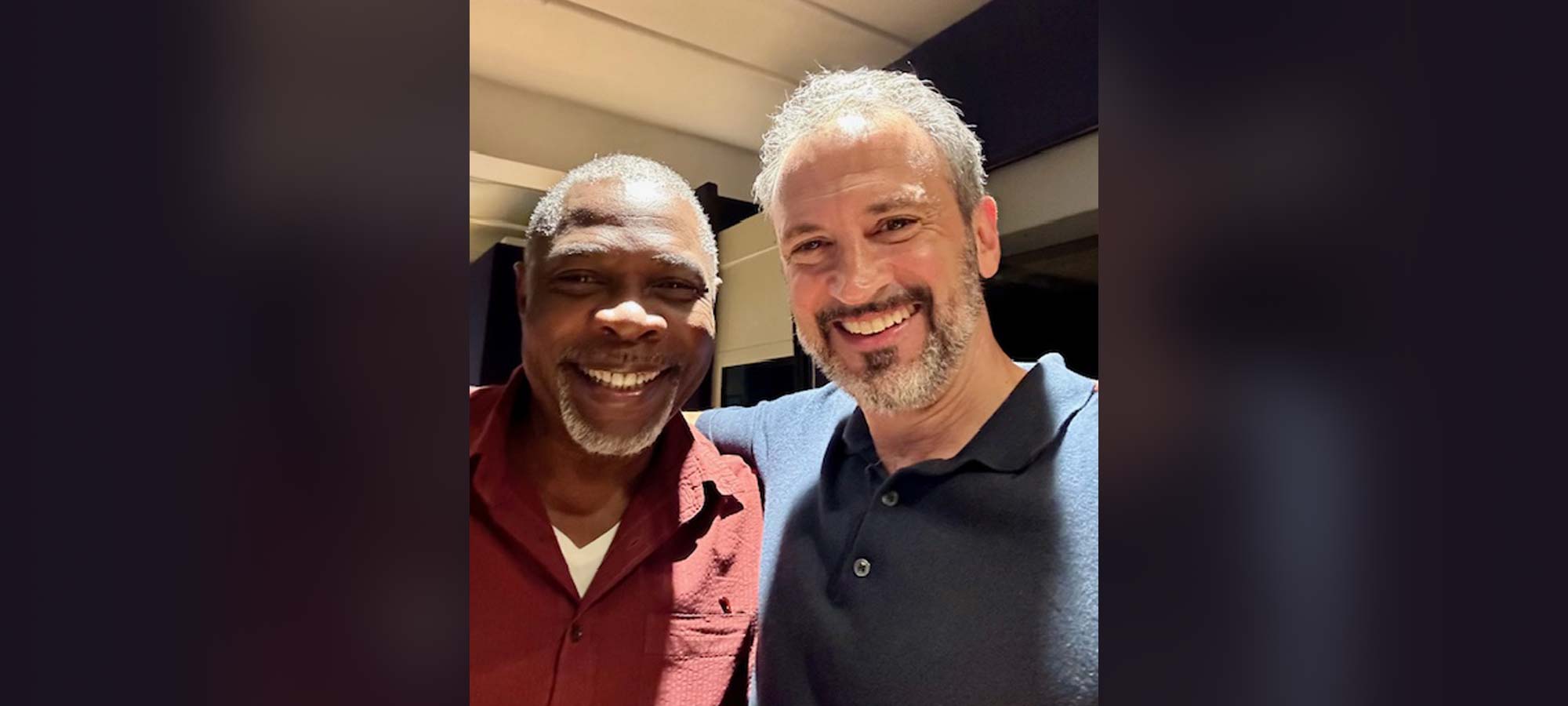
Making Play On Podcasts: An Interview with Michael Goodfriend
Play On Shakespeare interviews Michael Goodfriend, Head of Scripted Fiction at Next Chapter Podcasts, to talk all things Play On Podcasts! -
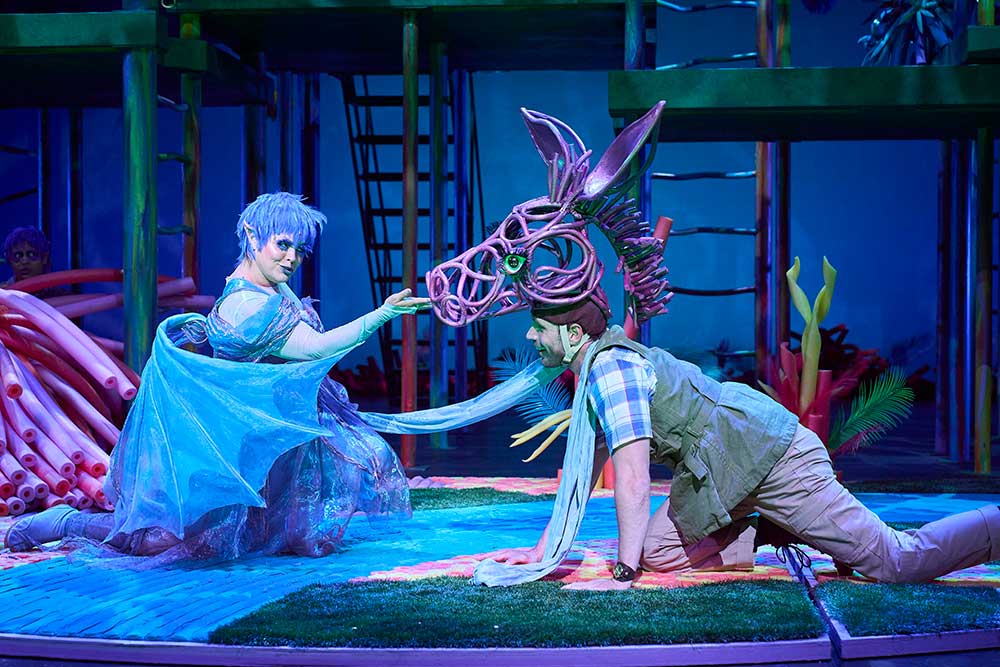
The Language of Midsummer
A MIDSUMMER NIGHT’S DREAM has had multiple productions this year—and one key takeaway has been the benefit of accessible language. -
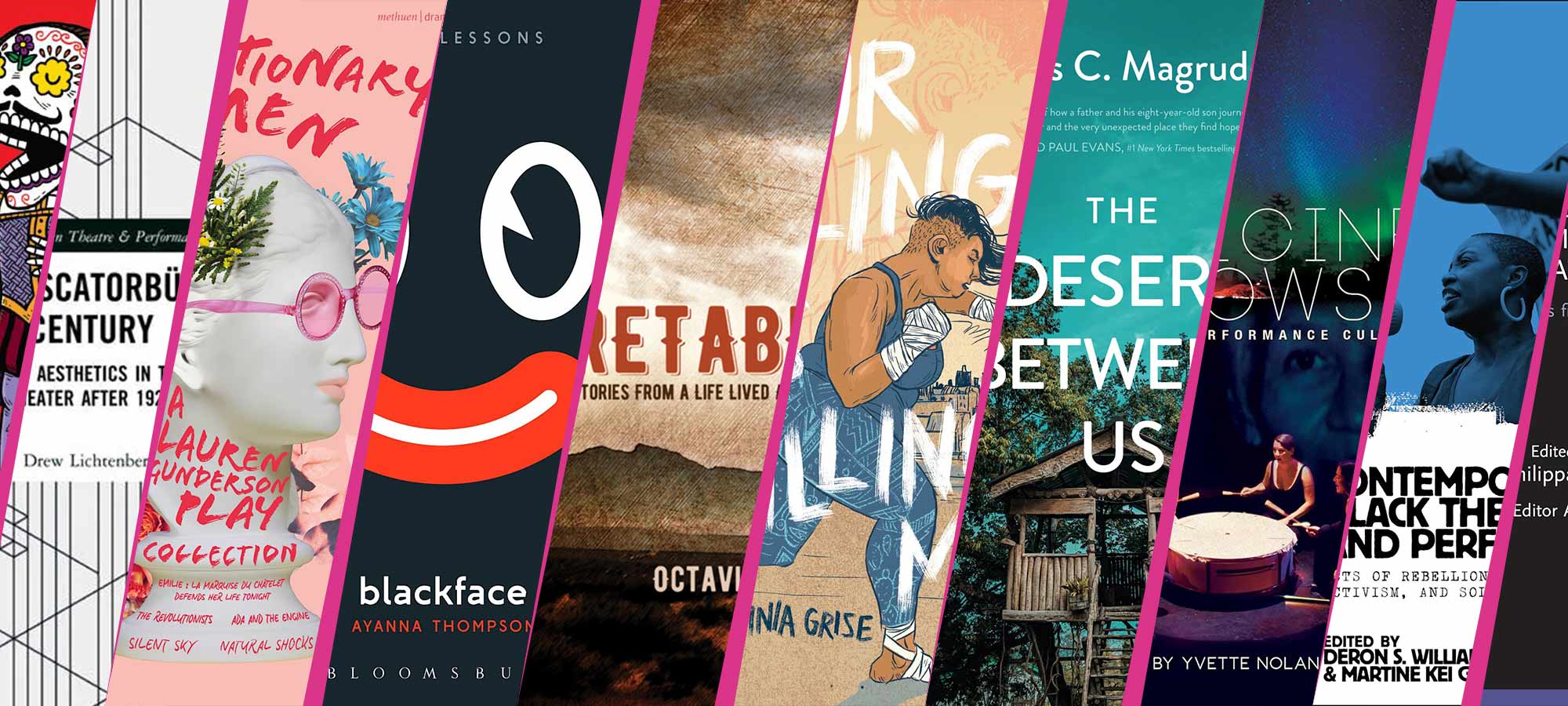
Level Up Your Reading List
This fall, Play On Shakespeare has the perfect reading list for you, with books written by some of our partner artists!

